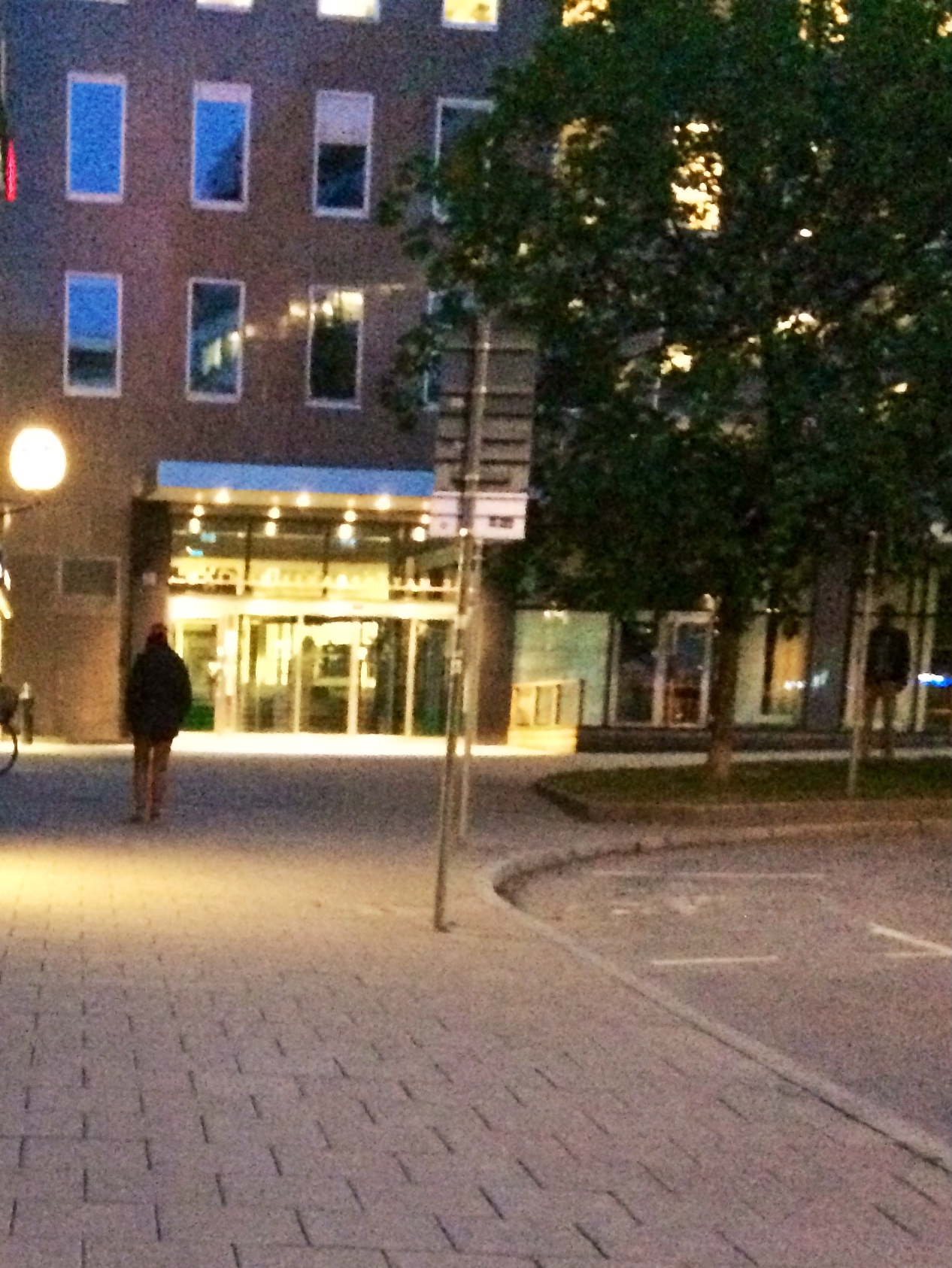
I had been told that the closest thing Stockholm has to a red-light district is Malmskillinsgatan, a raised street in the center of the city, overlooking the lights of trendy Ostermalm on one side and the massive modernist Kulterhuset, a cultural center, on the other. When I arrived at around 10:30 pm on a recent Wednesday night, it was largely dead. There was a lone Thai Massage parlor, but it closed at 8 pm. A storefront that looked like it was once a porn shop—a sign touted books, magazines and "video-show"—was shuttered.
It was only after a half hour of walking up and down the street that I saw a slowly strolling woman in tattered tights. She told me she didn't speak English, and a few minutes later I saw her walk off towards a nearby park with a man. As the night wore on, a few more women came out, most of whom appeared to come from Eastern Europe or sub-Saharan Africa. By 1am, I'd counted about eight. (None of the women who spoke English were interested in talking to a nosy journalist.) Sweden's Ministry of Justice claims that, in the aftermath of the country's 1999 law banning the buying but not the selling of sex, street prostitution has been halved. Looking around, this seemed, if anything, like an understatement.
Sweden still has prostitution, of course. There are Internet-based escorts, though the Ministry of Justice claims that neighboring countries have more. The government's claim is hard to evaluate, but almost everyone agrees that Swedish escorts are the most expensive in Europe, suggesting fewer women entering the business. What's indisputable is that the Swedish law has rendered prostitution largely invisible.
Those who remain in sex work say that this increases their job's stigma and danger, even if it doesn't explicitly criminalize them. Leading feminists, however, insist that creating a society where women's bodies are not seen to be for sale is a good in itself. Karin Svensson, the chairwoman of Roks, Sweden's largest organization of women's shelters, believes that the law is helping to change men's mentality, so that future generations "will never have the thought that you can buy a woman's body for your pleasure." To outsiders, that kind of talk can sound either audaciously utopian or tragically naïve. In Sweden, it's almost conventional wisdom.



